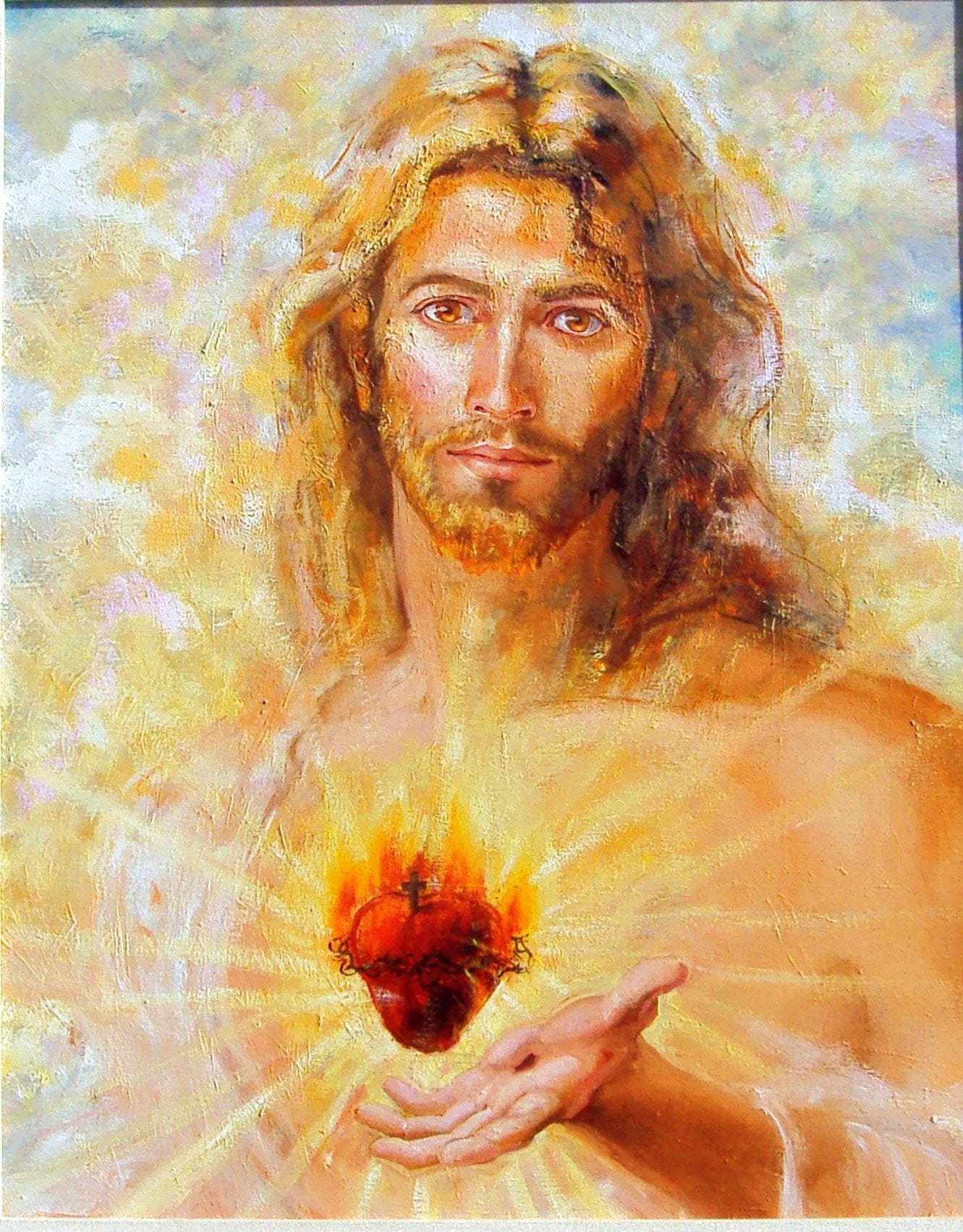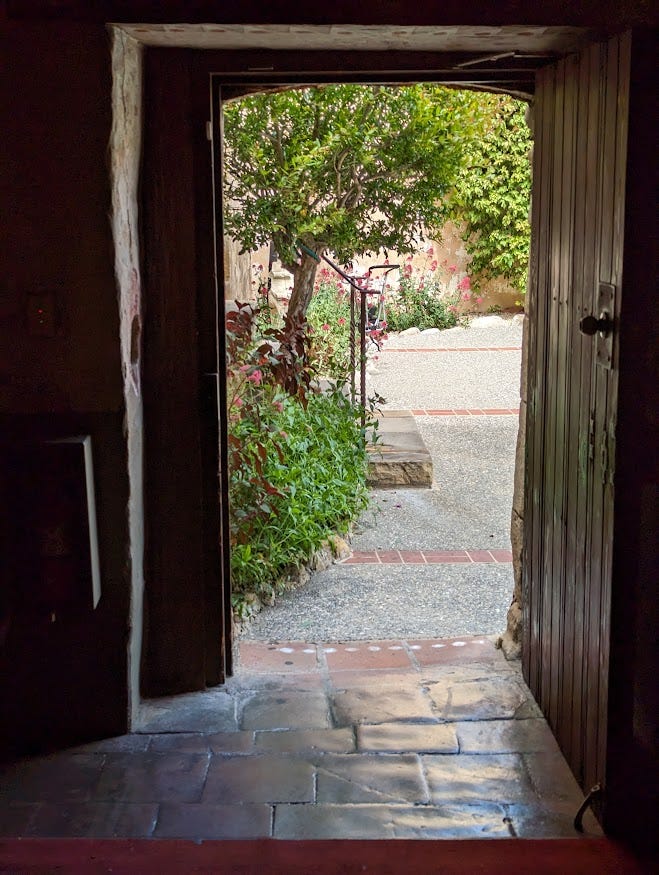“We cannot be judges who only deny, push back and exclude. As such, pastoral prudence must adequately discern whether there are forms of blessing, requested by one or several people, that do not convey a wrong idea of a matrimony. Because when one seeks a blessing, one is requesting help from God.” - Pope Francis on Possible Blessings for Same Sex Couples October 4, 2023
There probably is no listing of people that is more problematic for Christianity and all of its various forms than Lesbian, Gay, Bisexual, Transgender, Queer or Questioning, Plus which refers to other sexual identities including pan-sexual and Two-Spirit.
LGBTQ+ is a new social cultural construct of the early 21st century in the developed countries of the West. It is a tour de force of prioritizing various types of sexual identity over an ancient and deeply embedded sense of taboo that is common to the world’s religions. The movement has only gained traction in the last 50 years and a degree of acceptance in the last 25 years
Theology Meets the Street
Several years ago I came across a downcast and troubled priest in my work as a Catholic deacon. “So, Father, how is you day going?” A simple greeting and I expected the pro forma “fine” but he said, “Not well.” “How so?” I asked. I noticed that he was upset. He went on to tell me that two of his women parishioners who had been very active in the parish for years - he was new to the parish - were lesbians. They had children and a home. Everyone knew this including the priests who had served there previously. This devoted couple were part of the community. A few hours before our chance encounter, he told me that he had told the women that they could not participate in the parish and could not receive communion until they changed their lifestyle. As an ordained Catholic deacon with LGBTQ+ friends and relatives. I was appalled. Fortunately I had the presence of mind to realize that he needed something he had denied others - compassion. I had some idea of the storm that would soon engulf him. It was not a pretty sight.
A gay artist friend of mine in New York has always been a practicing Catholic. He was having some serious health issues and his local parish had always been welcoming. He was on good terms with the priests. He called the parish to ask for a priest or a lay person to bring him communion since he couldn’t move very far from his bed. A new young priest showed up and asked him if he would like to go to confession. My friend made his confession. In an amazing feat of pastoral malpractice and violation of conscience - “the young twerp” as my friend called him - denied him absolution and communion unless he would forswear his life style and promise to leave his committed relationship of many years. Outraged, he got out of his bed and threw the priest out of his fifth floor walk up. He later complained to a priest who was close to his family. The priest was incensed about what happened and said, “It’s a good thing I wasn’t there or I would have pushed him down the stairs myself.”
Welcome?
An online fight broke out among Catholic deacons when someone naively asked what church programs for gays and lesbians they would recommend for parish use. (Yes, there are such welcoming programs.) In a sibling free-for-all with some pretense of decorum, Marty Haugen’s popular hymn “All are Welcome” became the center of controversy. The main sentiment of the song has caused heart burn for more than one bishop and has been banned in at least one diocese that I know of. Welcoming people is an act of acceptance. It is hospitality, the most fundamental of all human obligations.
Instead of seeing welcome as a non-judgmental requirement of treating others with respect, many in the group saw the welcome of those with “homosexual tendencies” as an implicit or sometimes explicit endorsement of “deviant” lifestyles. Welcoming “impure” LGBTQ+ would defile the congregation.
People are excluded from receiving communion if they are divorced and remarried. Technically, it is supposed to apply to the 95 plus percent of Catholic women who practice birth control. It applies to those who are living together “in sin” without benefit of marriage even though contemporary mores have shifted to creating a stage of moving in together as trial step on the way to marriage. Regardless, Catholics are obligated to attend Sunday Mass. Are they welcome to do that?
The great challenge in pastoral work is how to be pastoral - how to provide spiritual support as opposed to enforcing behavior codes. People come with big problems - domestic violence, infidelity, betrayal, alcohol and substance abuse to name a few. Many are victims. Many are perpetrators which also means that they are often perpetuating cycles of harm and despair. Generally, people do not step forward and talk about how they exploit their employees, spread lies and disinformation, or use verbal and written codes for racism, sexism, or misogyny. They don’t talk about their direct or indirect role in destroying the environment while making profitable investments or advocating budget cuts that harms women, children, and the most vulnerable. Then they go to communion.
The Catholic Church has promulgated many rules and regulations that are somehow meant to govern an entity with over a billion members worldwide. The effort often defies the term “organized religion”. Yet at the very end of the Code of Canon Law, there is an overarching principle - “Salus animarum suprema lex”. The well-being of souls is the highest law. It is a beautiful idea in theory but often is lost when people in the pulpit and in the pews focus on the rules exclusively.
In the cloistered halls of seminaries for priests in training and in the graduate school classes of deacons in training who are living in their not so cloistered homes grappling with careers, marriages, and children, the courses in moral theology and pastoral practice talk about the sacredness of the human conscience and personal choices. The challenge is, how do you advocate for living in love and freedom and still foster a sense of accountability for one’s moral failures. Isn’t it hypocritical to teach that divorce is wrong and then help people come to the conclusion that their marriage is over? Isn’t hypocritical to say that birth control is wrong and help some one come to the realization that more children is not the best idea?
Purity and Danger
My uncle Martin, who went to his reward many years ago, was gay. He had been born in the 1920’s to my mother’s parents who were Mexican immigrant. He spent most of his life under laws that forbade homosexuality. I gave him a copy of Countryman’s 1988 book Dirt, Greed, and Sex - Sexual Ethics in the New Testament and Their Implications for Today. Uncle Martin was a well educated man. After serving in the infantry in World War II he went to college on the GI Bill and studied Spanish, French, and German.
He was conversant in philosophy and theology and a good pianist. He was also my Latin tutor and Spanish task master. I spoke with him about Countryman’s book, which was only the beginning of the avalanche of gay and lesbian theology. In the 60’s and 70’s my uncle did not have to have clandestine meetings with his lovers, but there was still a strong sense of discretion and denial in our large extended Mexican American family. I also had cousins who were gay.
He told me something remarkable when I asked him about Countryman’s dismissal of traditional Christian teaching on homosexuality as the ultimate taboo. He was a man of deep faith and he said, “No we can’t change this. Otherwise, we would have to go back and change everything from the beginning.”
Taboo is an ultimate prohibition and is central to human society. Defining and understanding it has been one of the major preoccupations of social science and psychology since their inception in the 19th century. Freud’s 1913 Totem and Taboo is a case in point. Homosexuality is not always a taboo in various cultures. In fact, sexuality as we define it and practice it has been and is often very different in various cultures and civilizations.
When we were graduate students in anthropology at Berkeley my wife Kathy introduced me to Mary Douglas’s 1966 book Purity and Danger: An Analysis of Concepts of Pollution and Taboo, The London Times Literary Supplement listed it in 1991 as one of the most influential non-fiction books published since World War II. Douglas’ primary concepts became basic to anthropology and touchstones in literary criticism, theology, and religious studies.
Purity is part of a sacred space that is bounded by ritual impurity and defilement. This can be seen in the fundamental categories of Judaism with respect to food and body taboos and purification rituals. Observance of the Mosaic Law split early Christianity. St. Paul was a former Pharisee and persecutor of adherents to the Jesus Movement. Saul of Tarsus, his original name who had been the champion of observant Orthodox Judaism, led a progressive faction of Jewish and non-Jewish Christians outside Israel that dropped the observance of the Mosaic Law. Nevertheless, the fundamental categories of purity and danger persisted but they were more focused on the morality or purity of thoughts and actions. Mary Douglas also points out the prevalence of taboos and their requisite sense of purity and danger as common in the various forms of human culture.
Jesus himself, moderated many of the practices of the Mosaic Law and subordinated them to the deeper ideals of mercy and compassion that had been espoused by Jewish prophets and teaching. His uncompromising stance against oppression by religious officials and the Roman Empire led to his crucifixion as an insurgent.
The various versions of Christianity all have a strict purity code. Virginal celibacy has been an ideal state of life since the earliest days of Christianity since it was first presented in the writings of St. Paul. It is seen as a divine gift and a testament to the coming of the heavenly kingdom. “In the resurrection, people will neither marry nor be given in marriage. Instead, they will be like the angels in heaven.” Luke 17:27
The leaders of the Reformation favored marriage and destroyed monasteries and convents. This led to the unofficial requirement that reform ministers should be married, which continues to this day. The optional celibacy innovation for Catholic deacons who are not advancing to the priesthood occurred 50 years ago and resulted in 95% of deacons being married or widowed.
The preference for virginal celibacy was a very counter cultural stance since sexual behavior in the Graeco-Roman world of late antiquity did not see the body as sacred In the Judeo-Christian sense. Hellenistic society had its own taboos and behavior codes. Worship of the gods was key to the welfare of the state. The Jews had in fact refused to adopt many of these practices that opposed the Mosaic Law and had gone to war in the Maccabean Revolt (160 to 167 BC) against their Seleucid overlords seeking to implant the culture of Alexander the Great in Israel.
Error Has Rights?
Rights and privileges granted by civil and religious authorities required that one be in “good standing”. The traditional saying error has no rights (error non habet ius) was a longstanding moral principle which justified the legal prosecution of people who did not accept or who rejected Church teachings. This principle was widespread across various denominations especially the Catholic Church and led to such horrors as the Inquisition and religious wars with Christians and non-Christians.
More recently, Christian churches - Catholic, Protestant, and Evangelical - have championed the non-violent struggle for human rights. The one exception are the Orthodox Churches particularly the Russian Orthodox church and its historic bond with the Russian state.
The Second Vatican Council (1962 - 1965) issued a transformational document on religious freedom Dignitatis Humanae (On Human Dignity).
This Vatican Council likewise professes its belief that it is upon the human conscience that these obligations fall and exert their binding force. The truth cannot impose itself except by virtue of its own truth, as it makes its entrance into the mind at once quietly and with power. - Dignitatis Humanae, Section 1
There was tremendous resistance among conservatives since it seemed that the Church was abandoning its moral principles. Error has no moral rights but it has legal rights. The moral and legal were cut asunder. Christian churches have a longer-term history of sanctioning “sinful” behavior in concert with the power of the state. Now the Church was left with moral authority but also respected the dignity of the human person.
However, secular morality in western countries and their former empires is largely based on the Judeo Christian tradition and codified into law. Today’s culture wars - especially LGBTQ rights - are based on maintaining traditional morals with the force of law and regulation. Unfortunately, this is a mainstay of cultures around the world. Even atheistic communist societies use faith in Marxist Leninism as a foundation for establishing a morals norms that becomes codified law. In most societies, the group is more important than the individual and those who violate the norms of the group are sanctioned, expelled, or killed.
Although adultery or sex before marriage - fornication - is a serious infraction of Judeo-Christian ethics, it is “natural” in the sense that it involves the preferred and expected behavior of a man and a woman. The penalties accrue to the woman in a patriarchal culture because she is the property of her father and his family, and her misfortune has defiled and dishonored the men in her lineage. Hence, the horrendous “honor” killings and femicide more broadly seen in some cultures.
Homosexuality was seen as unnatural in the Judeo-Christian world view. Clearly, more recent scholarship on same sex relations shows a wide variation in views about the sexual behavior in indigenous, ancient, and contemporary societies. However, it is safe to say that the Abrahamic faith traditions of Judaism, Christianity, and Islam view homosexual behavior as taboo.
Rebecca De Nova presents a nuanced overview in her article “LGBTQ in early Christianity.” Joshua Mark’s article “Ten Ancient LGBTQ Facts You Need to Know” also provides a concise if somewhat oversimplified presentation.
Joys and Hopes, Griefs and Anxieties
Coming to grips with it has even gotten Pope Francis into trouble. On October 2, Reuters reported that five cardinals from around the world openly demanded in a public letter that Pope Francis re-affirm traditional catholic teaching on homosexuality.
According to Reuters “The five cardinals - all well-known critics of the pope who range in age from 75 to 90 and no longer hold any major office - are Raymond Burke of the United States, Walter Brandmueller of Germany, Joseph Zen of Hong Kong, Robert Sarah of Guinea and Juan Sandoval Iniquez of Mexico.”
The same cardinals objected to the Pope’s broader agenda for the consultative synod meeting that began on October 4 which includes women’s leadership roles in the church. Twenty seven percent of the 365 invited members include priests, nuns, and lay women and men will be able to vote on a par with bishops. This modest toe in the water toward consultation has also generated criticism from conservatives who see it as a slippery slope to the parliamentary structure of mainline Protestant denominations. This conflict occurs when certainty is valued over the quest for service. Pope Francis has referred to the Church as a field hospital in contemporary society to the chagrin of his critics.
The Catholic Church continues to struggle with new human paradigms such as LGBTQ+ because of a commitment it made almost 60 years ago.
The Second Vatican Council (1962 – 1965) launched a new era in the Church’s understanding of itself. Instead of condemning the outside world, the Church began to look for ways to serve it. The leitmotiv of Catholic renewal is contained in the opening of the Pastoral Constitution of the Church in the Modern World, Gaudium et Spes, which was promulgated or officially adopted on December 7, 1965.
“THE JOYS AND THE HOPES, the griefs and the anxieties of the men and women of this age, especially those who are poor or in any way afflicted, these are the joys and hopes, the griefs and anxieties of the followers of Christ. Indeed, nothing genuinely human fails to raise an echo in their hearts. For theirs is a community composed of men and women. United in Christ, they are led by the Holy Spirit in their journey to the Kingdom of their Father and they have welcomed the news of salvation which is meant for every person. That is why this community realizes that it is truly linked with mankind and its history by the deepest of bonds.” –
Note. This quotation has been modified with more inclusive language adding women as opposed to just men. This of course leads to another moral challenge – the equality of women. Stay tuned.







